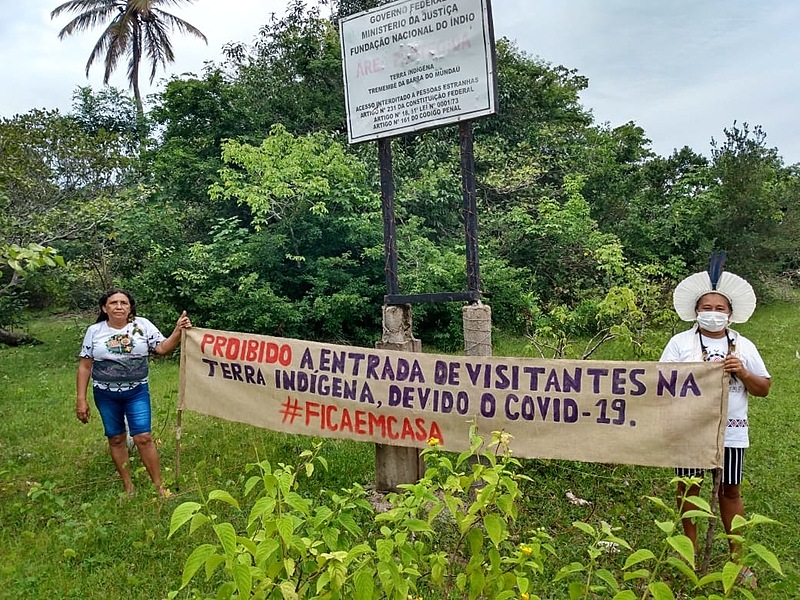RIO DE JANEIRO, BRAZIL – With the spread of the coronavirus pandemic in Brazil, native peoples join the list of Covid-19 victims that is growing every day.

There have already been 77 fatalities among the country’s 34 indigenous tribes – with 308 confirmed cases of infection – according to figures from SESAI (Special Secretariat of Indigenous Health) and APIB (Articulation of Indigenous Peoples of Brazil).
Approximately 81,000 indigenous people in 230 tribal territories are at risk from the novel coronavirus, according to these organizations. “It’s frightening how fast we’ve recorded the increase in deaths among indigenous peoples. In a little over a week, we’ve registered 49 more deaths of relatives, reaching an average of four deaths of indigenous people per day,” APIB says in a statement.
The most affected ethnic group is the Kokama, located in the Amazon. Between May 3rd and 7th, deaths by Covid-19 doubled among this community, from nine to 22 registered deaths, according to an APIB report. This ethnic group also had the first recorded case of the disease among indigenous people in Brazil on March 25th. The first recorded indigenous death from the new coronavirus was that of a 15-year-old Yanomami teenage girl in Roraima on 10 April.
“Covid-19 has now killed 12 Kokama relatives in the past few days alone, relatives who live in communities. How can we not say it was an omission? We leaders are doing our part, we expect our rulers to do theirs”, the Association of Kokama Indians Living in the Municipality of Manaus (AKIM) denounced in a statement.
According to data from the Coordination of Indigenous Organizations of the Brazilian Amazon (COIAB), in Amazonas the deaths among the Kokama people occurred in the municipalities of Tabatinga, Benjamin Constant, Santo Antônio do Içá, Itacoatiara, Autazes, and Manaus. The state, one of the most affected by the pandemic – some 14,168 cases of the novel coronavirus and 1,098 deaths, according to the Ministry of Health – has already recorded the deaths of 43 indigenous individuals from nine different peoples by Covid-19.
Other threats
Amid the spread of the pandemic among the original native peoples, Congress on Tuesday voted on Provisional Measure (MP) 910, which, in practice, regulates land irregularly occupied in the country.
The MP benefits recent land grabbing cases, pardoning the crime of public land invasion (and favoring its ownership) to those who committed it between the end of 2011 and 2018, in addition to encouraging new occupations and illegal logging, by raising the expectation among illegal land grabbers and squatters in the Amazon that the deadlines will again be updated in the future by the federal government or National Congress.
Leaders of parties such as the MDB (Brazilian Democratic Movement) and PSL (Social Liberal Party) have suggested that Congress stop discussing land tenure regularization through the MP and deal with the issue through a bill, to be analyzed next week.
Several socio-environmental organizations, such as the CIMI (Indigenous Missionary Council), ISA (Socio-environmental Institute), Greenpeace, and WWF-Brazil, as well as former Environment Ministers, such as Sarney Filho, Carlos Minc and Marina Silva, have spoken out against MP 910. The APIB argues that, if passed, the measure could contribute to the increase in the number of deaths and infections within indigenous territories, “because it encourages an increase in invasions that violate the social isolation of communities”.
On May 8th and 9th, the APIB held the National Assembly of Indigenous Resistance to draw up a plan to fight the pandemic specifically for the indigenous peoples’ context.
“In times of pandemic, the struggle and collective solidarity that has rekindled in the world will only be complete with the indigenous peoples, because the cure will not only lie in the active principle but also in our human principles,” concludes the association’s note.
Source: El País

